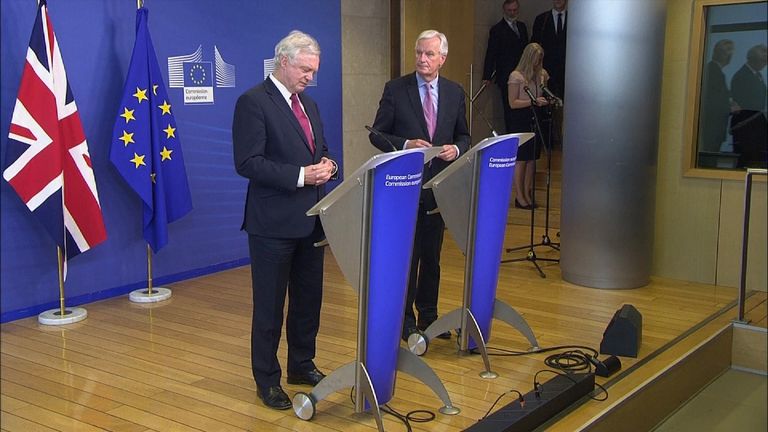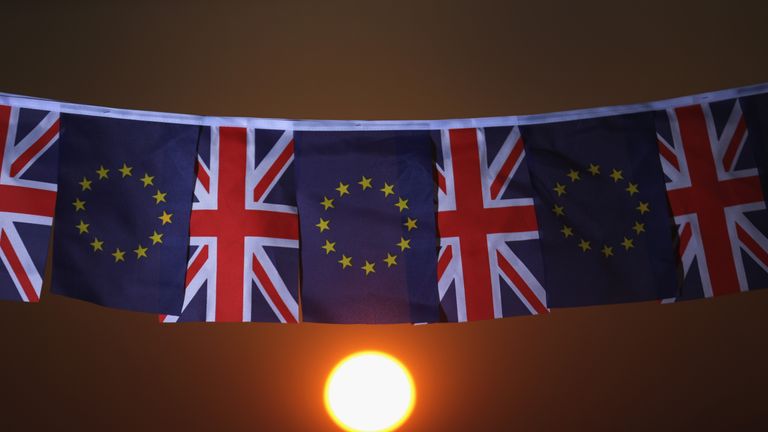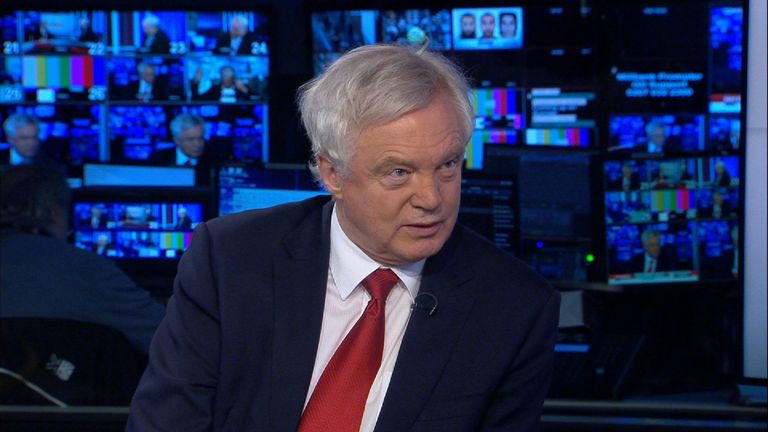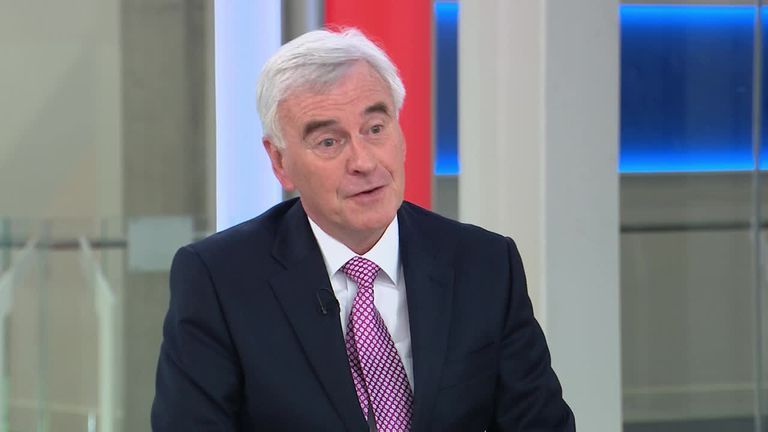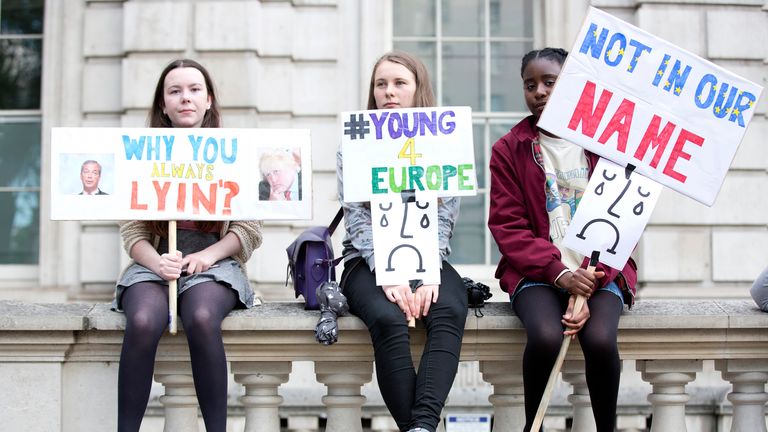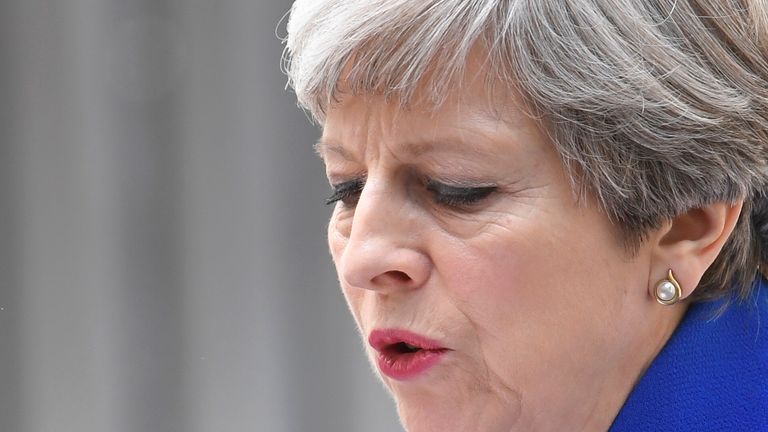Brexit negotiations begin: What does each side want?
How much will the UK have to pay? What will happen to the Irish border? All you need to know about the Brexit negotiations.
Monday 19 June 2017 12:52, UK
The moment is finally upon us.
Almost a year to the day since Britain voted to leave the European Union, the two sides finally sit down and . The divorce procedure has begun.
What does each side want?
We know in considerable detail what the EU side is demanding out of the process.
Complete with their long-established negotiating team, Taskforce 50, headed by Frenchman Michel Barnier, the EU side says its agenda and objectives are transparent and designed to remove uncertainty for citizens and limit the economic impact of Brexit.
Mr Barnier, a former French government minister and two-time European commissioner, is an experienced negotiator and formidable operator.
The EU's promotional video, distributed across EU countries, outlines their aims, objectives and red lines.
The European Commission has published "position papers" on key issues to be resolved in the first phase of negotiations:
:: Citizens' Rights
What is the status of the 1.2 million Brits living in the EU and the 3.2 million EU citizens living in the UK? Can they stay? What benefits can they have? Who'll pay? Which court protects them? Can they get permanent residence rights?
Here's the EU's .
In short it says EU citizens must be able to continue to live in Britain even if they arrived just before Brexit day, and that they must be allowed to apply for UK citizenship and all the benefits that come with it.
Precisely the same arrangements should apply for Britons living in the EU.
And one key demand: the European Court of Justice, the EU says, must have full jurisdiction over EU nationals in the UK for however long they live there. For the UK negotiators that will be perhaps impossible to accept.
:: Britain's Financial Commitment (the so-called "exit bill")
From the EU side, it's simple - "pay up what you have committed to". No figure has ever been officially issued but the net figure, which hasn't been denied by the EU, could be around about €60bn.
Here's the EU's .
It insists that the calculations used to reach a mutually accepted figure must be agreed upon. It also lists the 74 European Agencies which the UK has made financial obligations to - a hint of how complicated things will get.
:: The Irish border
Maintaining a soft border between Northern Ireland and the Republic of Ireland is key to the EU negotiation position. The UK holds the same position; the question is how to achieve that given that the UK wants to leave the single market and customs union.
Curiously, no EU position paper has been published on this yet, perhaps because it boils down to one single demand: the border must remain open.
:: Britain's demands
For its part, the . The 75 page document is, on the face of it, weighty.
But it's been criticised by business leaders and the opposition parties for being light on detail. It does not spell out the practicalities of precisely how the UK plans to extract itself from the union.
And in the months since it was published, the British Government has gone from having a healthy majority to no majority at all.
Far from having a strong mandate, Mrs May's administration is now weak, fragile and propped up by Northern Ireland's Democratic Unionists.
The White Paper said the UK would leave the single market and the customs union - a so-called "hard Brexit".
But is that still the plan? It's not clear. Is "no deal" still "better than a bad deal"?
We've heard more talk about a "softer Brexit" and a "sensible Brexit" since the election, as well as suggestions of a cross-party Brexit negotiating team.
For now, as things stand, the government says its Brexit plan hasn't changed. What plainly has changed, is its mandate to deliver it.
:: What's the timetable?
Today's meeting between Michel Barnier and his opposite number, David Davis, is essentially theatre - a "grip and grin" handshake and photo opportunity.
It is an attempt by the British side to show that, despite domestic political difficulties following the election, it is ready and at the table in Brussels. There won't be a proper full-scale negotiation this week.
In part, this is because Mrs May's deal with Northern Ireland's DUP, which would give her party a majority, has yet to be reached.
The Queen's Speech, formally opening this session of Parliament, is also yet to happen. As things stand, the government doesn't actually have a parliamentary mandate for Brexit.
But once the proper negotiations do get underway, they will follow a four-week pattern devised by the European Commission.
Weeks one and two will be for preparations. Staff from both sides will meet in Brussels to establish the battle lines.
The third week in each cycle will be the negotiation week. Mr Barnier and Mr Davis hammering it out across the negotiations table.
Week four will be the time for progress to be reported back to the governments of all the EU member countries.
This pattern will continue through the summer. Only when the EU deems sufficient progress has been made, will talks move to phase two - the future relationship.
Accepting this timetable and sequencing was something Mr Davis said he would not do, but that was before the election. The EU side will be wondering if the UK has blinked even before the first round.
The negotiations, including the exit deal and the agreement on the future relationship, must be completed within the two year period which began in March when the UK triggered Article 50.
Brexit isn't a singular event but a long, tricky process and the timetable is extremely tight.

